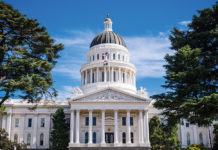— Rollie Atkinson
“Comprehensive health insurance is an idea whose time has come
in America. For the average American family, it is clear that
without adequate insurance, even normal care can be a financial
burden, while a catastrophic illness can mean catastrophic
debt.”
The words quoted above are not from a recent Town Hall speech by
President Barack Obama. They were spoken 34 years ago by one of
Obama’s predecessors, former President Richard Nixon, a
conservative Republican.
In response, the American Medical Association (AMA) denounced
Nixon’s Comprehensive Health Insurance Plan as being
“socialist.”
As it turns out, America’s quest for a universal health care
system has been a cruel story of “déjà-vu all over again.” Not only
Obama and Nixon have been called “socialists” for expanding
government-supported health care but so were presidents Franklin
Roosevelt, Truman, Eisenhower, Johnson and Clinton.
Why is it that what is considered a good plan for education, our
military, our roads and retirement plans is called “socialist” when
it comes to health care for all?
Isn’t free public education and compulsory school attendance a
“socialist” plan? We just bailed out the richest (and greediest)
bankers on Wall Street with billions of Bush-era TARP funds. Isn’t
that socialist welfare? It certainly isn’t unfettered, free market
capitalism, now is it?
Obviously some very powerful “capitalists” have never wanted
government-led health care reform. The AMA, large private hospital
corporations, pharmaceutical laboratories and for-profit insurance
companies have been calling health care reforms bad names and
launching scare tactics at it for at least 70 years.
Nobody likes government messing in our lives and businesses. But
it is more than obvious that the toughest — and least profitable —
problems with our expensive and dysfunctional health care system
requires government intervention and support. We’ve needed a
“public” plan for 70 years.
Roosevelt’s New Deal programs and his Social Security Act were
not only called socialistic, but communistic. His plan to require
employers to withhold payroll deductions to pay for a public
retirement fund (Social Security) were fought in courts.
Presidents Truman and Eisenhower both tried and failed to expand
Social Security to include added coverage for widows, children and
the poor.
President Johnson and a Democratic-majority Congress started the
universal Medicare program in 1965 as part of the Great Society
programs.
When Nixon first pushed for a national health insurance program
and a government-led network of health maintenance organizations
(HMOs), there were 25 million Americans without affordable access
to basic health care. Today, that number is approaching 50
million.
Like providing a public education, our society must either
believe that health care should be provided to everyone or that it
should not. We have a universal education system, so why not a
universal health care system, too?
Since Roosevelt’s New Deal days, our country has been having a
“socialism versus capitalism” debate. Recently this argument has
reached its lowest, most vile point with Nazi-baiting,
fear-mongering and the shouting of all kinds of “silly-isms” at
this summer’s health reform town halls.
Being a nation “of, by and for the people” allows us many
freedoms, choices and opinions. But we are also a nation with trade
policies, food and drug regulations, tax laws and public courts of
final decree.
No government — be it socialist or capitalist — should interfere
with our lifestyle decisions, buying choices, reading materials or
health care plans.
At the same time, we need a government to protect us from greedy
corporate executives, and the elite and powerful few who control
our oil, weapons-making, natural resources, banks and our
medicine.
Hands off, or hands on? Socialism or capitalism? Perhaps the
answer is some of both as we stop calling each other names.
55.1
F
Healdsburg
April 17, 2025







